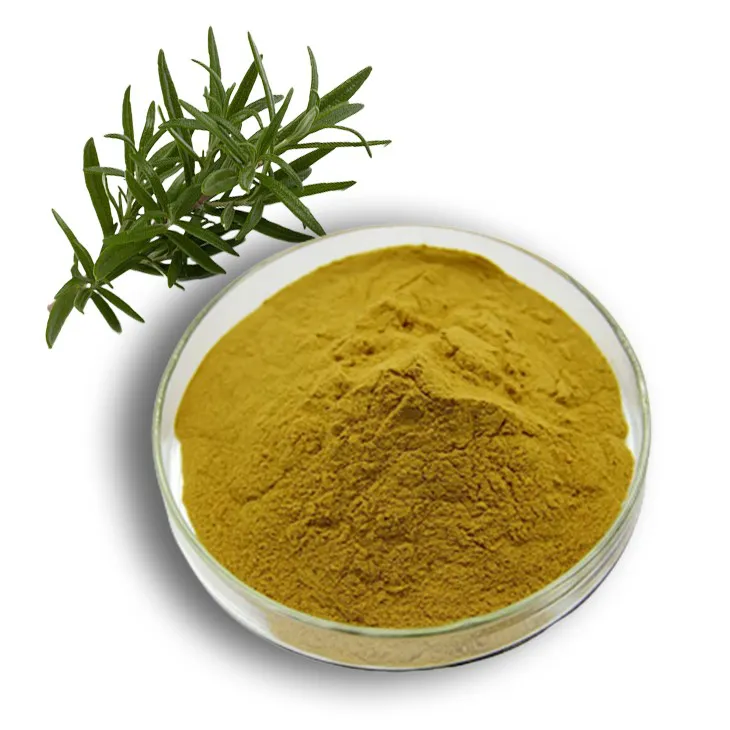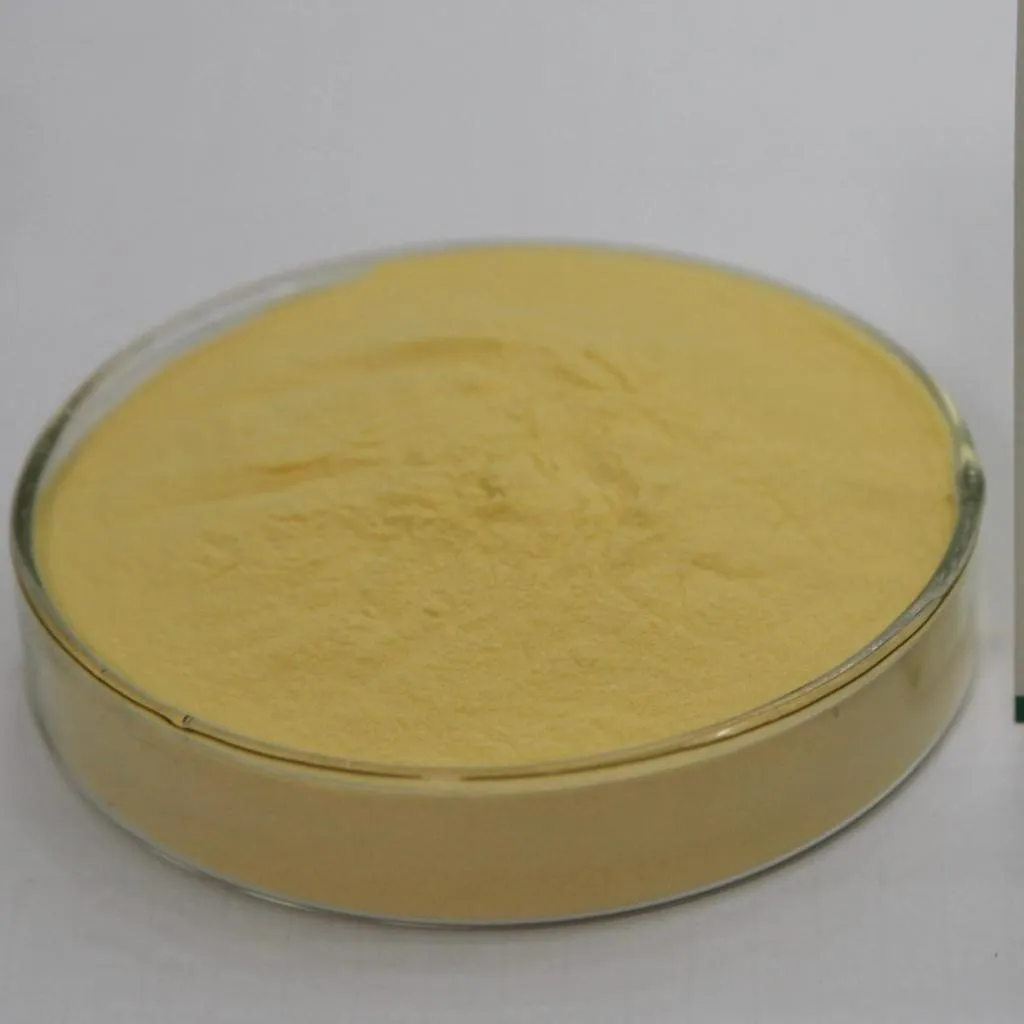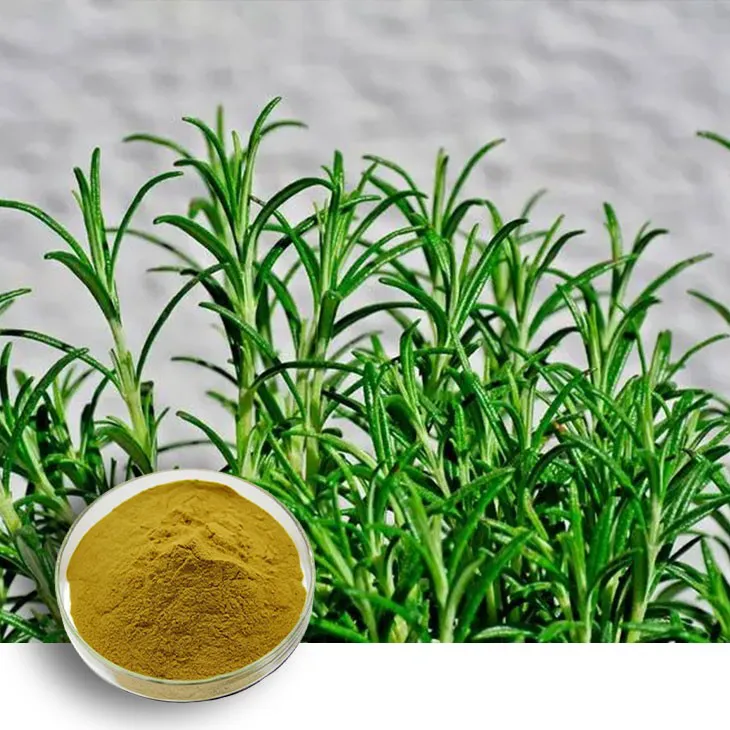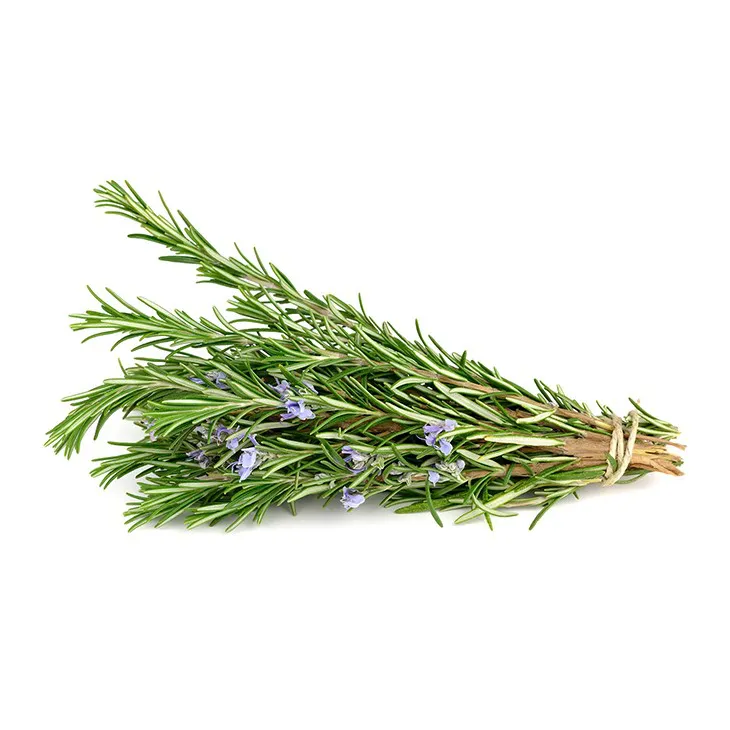- 0086-571-85302990
- sales@greenskybio.com
Application of Rosemary Extract in Skin Care.
2024-11-12

1. Introduction to Rosemary extract
Rosemary (Rosmarinus officinalis) is a well - known herb that has been used for centuries in various applications, including cooking, medicine, and now, skin care. Rosemary extract is obtained from the rosemary plant through different extraction methods, such as steam distillation or solvent extraction. It contains a rich blend of bioactive compounds that are responsible for its numerous beneficial properties in skin care.

2. Antioxidant Properties
2.1 Free Radicals and Skin Aging
One of the most significant aspects of Rosemary extract in skin care is its antioxidant activity. Free radicals are highly reactive molecules that are constantly produced in our bodies due to various factors like environmental pollution, UV radiation, and normal metabolic processes. These free radicals can cause damage to skin cells by oxidizing important cellular components such as lipids, proteins, and DNA. This oxidative damage is a major contributor to skin aging, leading to the formation of wrinkles, fine lines, and loss of skin elasticity.
2.2 How Rosemary Extract Fights Free Radicals
Rosemary extract is rich in antioxidants such as phenolic compounds, including rosmarinic acid, carnosic acid, and carnosol. These antioxidants work by donating electrons to free radicals, thereby neutralizing them and preventing them from causing further damage to the skin cells. By scavenging free radicals, rosemary extract helps to slow down the aging process of the skin, keeping it looking youthful and healthy.
3. Anti - Inflammatory Properties
3.1 Skin Inflammation and Its Causes
Skin inflammation can be caused by a variety of factors, including exposure to allergens, irritants, and certain skin conditions such as eczema and psoriasis. Inflammatory responses in the skin can lead to redness, swelling, itching, and discomfort. Chronic inflammation can also disrupt the normal structure and function of the skin, contributing to premature aging and other skin problems.
3.2 The Anti - Inflammatory Mechanism of Rosemary Extract
Rosemary extract has been shown to possess anti - inflammatory properties. The bioactive compounds in rosemary extract can inhibit the production of inflammatory mediators such as cytokines and prostaglandins. By reducing the production of these inflammatory substances, rosemary extract helps to soothe irritated skin, reducing redness, swelling, and itching. It can be particularly beneficial for those with sensitive or inflamed skin conditions.
4. Antimicrobial Effects
4.1 The Skin Microbiome
The skin is home to a diverse community of microorganisms known as the skin microbiome. A healthy skin microbiome is essential for maintaining the skin's barrier function, protecting against pathogens, and regulating immune responses. However, imbalances in the skin microbiome can lead to various skin problems, such as acne, dermatitis, and infections.
4.2 Rosemary Extract's Role in Promoting a Healthy Skin Microbiome
Rosemary extract has antimicrobial properties, which can help to maintain a healthy balance in the skin microbiome. It can inhibit the growth of harmful bacteria, fungi, and viruses on the skin. For example, it has been shown to be effective against common skin pathogens such as Staphylococcus aureus and Propionibacterium acnes, which are associated with acne. By controlling the growth of these microorganisms, rosemary extract promotes a healthy skin environment.
5. Incorporating Rosemary Extract into Skin Care Products
5.1 Types of Skin Care Products
Rosemary extract can be found in a wide variety of skin care products. It is commonly used in facial creams, serums, lotions, and masks. It can also be incorporated into body lotions, sunscreens, and even hair care products that also benefit the skin on the scalp.
5.2 Dosage and Concentration
The appropriate dosage and concentration of rosemary extract in skin care products can vary depending on the specific product and its intended use. In general, manufacturers need to ensure that the concentration is sufficient to provide the desired benefits without causing any adverse effects. Too high a concentration may lead to skin irritation in some individuals, while too low a concentration may not be effective.6. Clinical Studies and Evidence
6.1 Studies on Anti - Aging Effects
Several clinical studies have been conducted to evaluate the anti - aging effects of rosemary extract. These studies have shown that regular use of skin care products containing rosemary extract can lead to improvements in skin texture, reduction in the appearance of wrinkles, and increased skin elasticity. For example, in a double - blind, placebo - controlled study, participants who used a cream containing rosemary extract for a certain period showed significant reduction in wrinkle depth compared to those using the placebo cream.
6.2 Research on Anti - Inflammatory and Antimicrobial Benefits
There is also evidence to support the anti - inflammatory and antimicrobial benefits of rosemary extract in skin care. In vitro and in vivo studies have demonstrated its ability to reduce skin inflammation and inhibit the growth of skin pathogens. For instance, a study on patients with mild eczema showed that a topical formulation containing rosemary extract improved the symptoms of inflammation, such as redness and itching.7. Precautions and Considerations
7.1 Allergic Reactions
While rosemary extract is generally considered safe for use in skin care, some individuals may be allergic to it. Allergic reactions can range from mild skin irritation to more severe symptoms such as hives or swelling. It is important for consumers to perform a patch test before using a new skin care product containing rosemary extract.
7.2 Interaction with Other Ingredients
Rosemary extract may interact with other ingredients in skin care products. For example, it may affect the stability or efficacy of certain active ingredients. Manufacturers need to carefully consider these interactions when formulating products to ensure the overall safety and effectiveness of the final product.8. Conclusion
Rosemary extract has emerged as a valuable ingredient in skin care due to its antioxidant, anti - inflammatory, and antimicrobial properties. It offers a natural and effective approach to combating skin aging, soothing irritated skin, and promoting a healthy skin microbiome. However, like any skin care ingredient, it is important to use it with appropriate precautions. As research continues, we can expect to see more innovative applications of rosemary extract in the field of skin care, further enhancing its potential to improve skin health.
FAQ:
What are the main antioxidants in rosemary extract?
Rosemary extract contains antioxidants such as rosmarinic acid, carnosic acid, and carnosol. These compounds are effective in neutralizing free radicals, which are unstable molecules that can damage skin cells and lead to premature aging.
How does rosemary extract soothe irritated skin?
The anti - inflammatory properties of rosemary extract play a crucial role in soothing irritated skin. It can reduce inflammation by inhibiting certain enzymes and cytokines involved in the inflammatory response. This helps to calm redness, itchiness, and other signs of skin irritation.
Can rosemary extract be used for all skin types?
Generally, rosemary extract can be used for most skin types. However, those with extremely sensitive skin may need to do a patch test first. For normal, oily, and combination skin, it can offer benefits like antioxidant protection and sebum regulation. For dry skin, when used in appropriate formulations, it can also contribute to overall skin health without causing excessive dryness.
How does rosemary extract promote a healthy skin microbiome?
Rosemary extract's antimicrobial effects help to keep the skin microbiome in balance. By inhibiting the growth of harmful bacteria, fungi, and other microorganisms on the skin, it allows the beneficial microbes to thrive. A healthy skin microbiome is essential for maintaining skin barrier function, preventing infections, and promoting a healthy complexion.
What are the common forms of rosemary extract in skin care products?
Rosemary extract can be found in various forms in skin care products. It can be in the form of an oil extract, which is often used in products like serums and moisturizers. It can also be in a water - soluble form, which is suitable for use in toners and some types of cleansers. Additionally, it may be part of a complex ingredient blend in masks and other specialized skin care products.
Related literature
- The Antioxidant and Anti - Inflammatory Properties of Rosemary Extract in Skin Health"
- "Rosemary Extract: A Natural Ingredient for Skin Microbiome Modulation"
- "Beneficial Effects of Rosemary Extract on Different Skin Types"
- ▶ Hesperidin
- ▶ Citrus Bioflavonoids
- ▶ Plant Extract
- ▶ lycopene
- ▶ Diosmin
- ▶ Grape seed extract
- ▶ Sea buckthorn Juice Powder
- ▶ Fruit Juice Powder
- ▶ Hops Extract
- ▶ Artichoke Extract
- ▶ Mushroom extract
- ▶ Astaxanthin
- ▶ Green Tea Extract
- ▶ Curcumin
- ▶ Horse Chestnut Extract
- ▶ Other Product
- ▶ Boswellia Serrata Extract
- ▶ Resveratrol
- ▶ Marigold Extract
- ▶ Grape Leaf Extract
- ▶ New Product
- ▶ Aminolevulinic acid
- ▶ Cranberry Extract
- ▶ Red Yeast Rice
- ▶ Red Wine Extract
-
Avocado Extract Powder
2024-11-12
-
Ivy Extract
2024-11-12
-
Aminolevulinic acid
2024-11-12
-
Lemon Extract
2024-11-12
-
Curcumin
2024-11-12
-
Reishi mushroom extract
2024-11-12
-
Lily extract
2024-11-12
-
Curcumin Extract
2024-11-12
-
Golden Seal Extract
2024-11-12
-
Hedyotis Diffusa Extract
2024-11-12





















